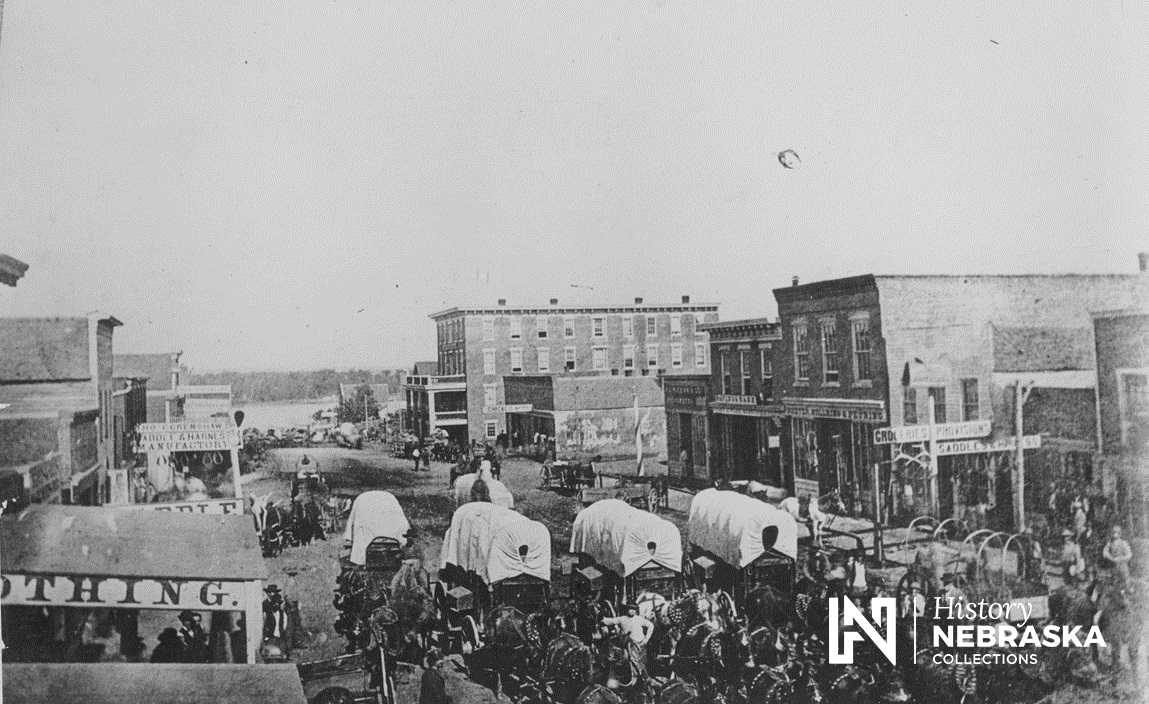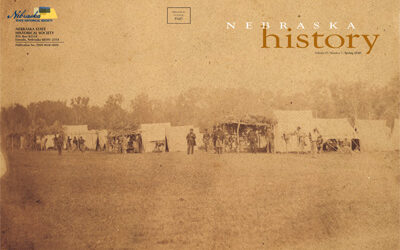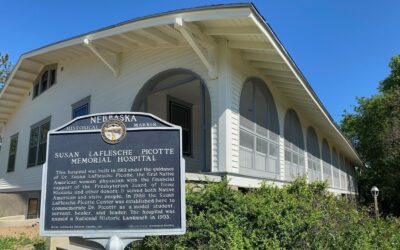Nebraska City in 1866 was a veritable freighting metropolis. Wagons, oxen, mules, and people of all sorts hurried about to get “fitted out” to cross the plains.

Nebraska City in 1866 was a bustling center of freighting activity and westward immigration. Stella (surname unknown), in a letter written on January 28, 1866, from the Nebraska City area to her younger sister attempted to give “some idea of life in these ‘Western wilds.'” She described Nebraska City as
a great point for the ‘fitting out’ of trains to cross the plains, one is astonished at the blocks after blocks of ‘Men’s Furnishing Goods’ ‘Fitting out Houses’ ‘Outfitting Establishments’, etc. And these establishments are wholesale, nearly all of them. . . . The streets are not filled with carriages and gay equipages, tho’ I saw some elegant turnouts–but there are huge freight wagons on every street, at every corner, there are hundreds of oxen and mules attached to them. Often ten yokes of oxen to a wagon oftener four of mules driven with one line.
There is heard the lumbering of these prairie schooners, the bellowing oxen–braying of mules, creeking of the long lariats which for me is a show of itself to see the dexterity with which the drivers use them. There is the hollowing, yelling of teamsters mingled with more oaths than I ever heard before in all my life together. These are some of the street scenes one meets in Nebraska City. ‘Everybody for himself’. And the people rush up and down the streets in utter forgetfulness apparently, of everything but rushing, rushing right on–not much matter where. The merchants and their clerks seem to care very little whether customers buy or not–if they have plenty of time will be polite, will attend to you if not–no matter. Tell you the prices–you can take the article or let it alone if you don’t like the price–‘lump it’ to use an elegant phrase. They don’t care–are perfectly independent.
Speaking of trains, everyone has one or more, usually one wagonmaster, who conducts the whole concern. These wagonmasters, are almost without exception, gentlemen of education, men who talk in a quiet gentlemanly manner to everyone, expect to be obeyed by their inferiors and are. Do not swear, neither when they are about will allow the drivers, this I say, is the sort of men they are as a general rule–such being the case there are few ‘fusses’ among the different trains that come in contact with each other in crossing the plains.



